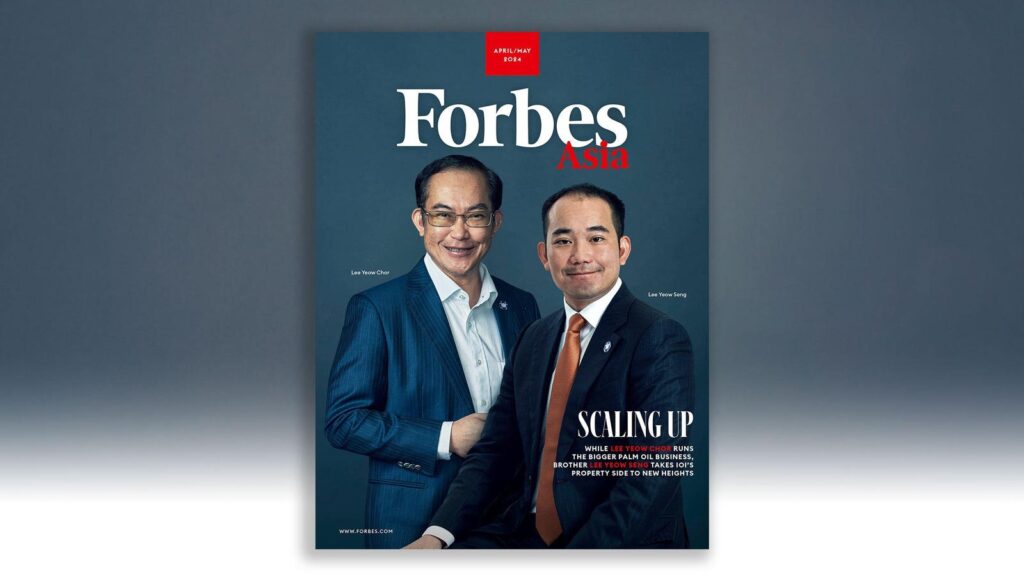Forbes Asia June 2024 Cover
Forbes Asia
aAsia and technology have long had a special relationship. Countries in the region boast vibrant tech sectors and at least one national champion that has grown from a small startup into a regional or even global giant, such as Canva in Australia, Alibaba in China, Infosys in India, GoTo in Indonesia, Grab in Malaysia, Sea in Singapore, Samsung in South Korea, TSMC in Taiwan, and VinFast in Vietnam.
This issue is packed with examples of Asia's relentless pursuit of technological innovation: the rise of AI has been fueled in no small part by equipment supplied by Asian companies, generating enormous new wealth for its founders in the process.
Exhibit A is Taiwan's 50 richest people. Their total wealth has risen about 12% since last year's ranking to $174 billion, with most of the increase coming from people in the technology sector. Barry Lam has more than doubled his wealth to $11.7 billion, making him the new No. 1 on the list, thanks to surging demand for AI servers and laptops made by his company, Quanta Computer. Morris Chang, founder of foundry TSMC, has seen his net worth increase from $2.3 billion to $3.3 billion.
The AI boom has also had an impact on Japan's 50 richest people, with Masayoshi Son making a big profit when SoftBank Group Corp. listed chip designer Arm Holdings on the Nasdaq. Other beneficiaries include the Sekiya clan, whose fortune rose nearly 150% to $7.4 billion after shares in chip-equipment maker Disco nearly tripled.
As Asia's youngest generation, the 30 Under 30 Asia members have grown up with digital devices, and while many of their innovations feature AI as the flagship application, they've deployed an incredible range of technologies, from AI-powered smart gloves that help the blind read Braille to a network of EV charging stations across India.
In Silicon Valley, tech giants are engaged in heated debate about how to best use AI in an article accompanying the annual Midas List, a global tally of companies that have benefited most from technology investments. Another tech-related article profiles the two Australians who run and own Stake.com, the world's largest cryptocurrency casino with annual revenues of $2.6 billion.
Harry Triguboff
Mick Bruzzese (Forbes Australia)
Finally, a word about low-tech billionaire, Australian real estate tycoon Harry Triguboff. He’s definitely old school, literally running a brick-and-mortar business. After all, all these tech entrepreneurs and their hardware have to be housed somewhere. As always, we invite all comments to be sent to editor@forbesasia.com.


